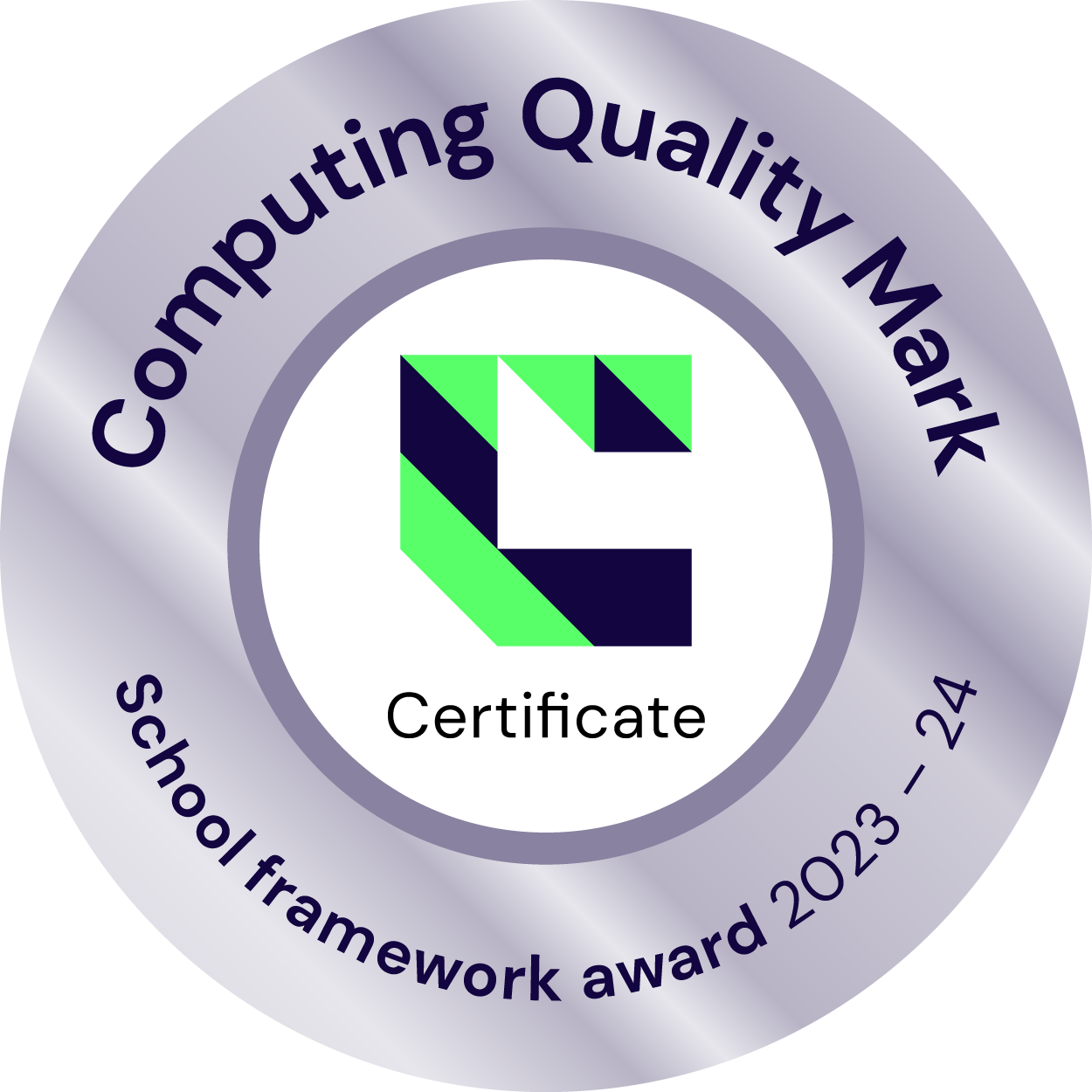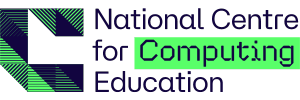Spotlight on Computing
 We have achieved the NCCE Computing Quality Mark (CQM), which recognises the excellent computing education provision at our educational establishment!
We have achieved the NCCE Computing Quality Mark (CQM), which recognises the excellent computing education provision at our educational establishment!
Our staff, led by Miss van Gemeren, and pupils, value computing education, and have "worked hard to deliver excellent provision." (NCCE Computing Quality Mark assessment comment)
The Computing Quality Framework is designed to be easy-to-use, but it is also rigorous, and we are justifiably proud of our achievements.
Computing and digital skills are increasingly valuable in opening up opportunities for young people, and we are committed to making a world class computing education a reality for our pupils.

Research Project with Cambridge University starting June/July 2024
We have been invited to take part in a study investigating computing education and physical computing. This project is being carried out by researchers at the University of Cambridge. There are only 17 schools in the UK that are taking part so it is a terrific opportunity for our pupils and Mrs van Gemeren.
Background
Physical computing involves combining programmable hardware with software to create an interactive, physical system that senses and responds to the real world. An example of such a device is the BBC micro:bit. Through the BBC micro:bit - the next gen campaign, over 500,000 micro:bits have been distributed to UK schools. Previous research has found that the micro:bit is beneficial for young people, in terms of their motivation, creativity, and programming skills. Young people find the micro:bit engaging and like how tangible and easy to use it is. However, researchers do not yet know whether initial experiences with the micro:bit translate into long-term impacts on their attitudes and beliefs such as confidence and creativity.
The Exploring Physical Computing in Schools (EPICS) project is a five-year longitudinal project that aims to investigate this. The researchers at the University of Cambridge will also be investigating the role teachers’ play in the development of pupils’ digital capital, as well as any gender differences in how children engage with the micro:bit. The research project is funded by a donation from the Micro:bit Educational Foundation, the BBC, and Nominet.
This project
As part of this project, the researchers are collecting an initial set of data this summer, to inform the longitudinal aspect of our research project. For this initial round of data collection, they will be conducting focus groups with pupils in Year 4 and interviews with their teachers. Our school is being invited to take part as we received our class set of micro:bits through the BBC’s micro:bit - the next gen campaign. Mrs van Gemeren will be asked to deliver a 6 week unit of work introducing the micro:bit to our Year 4 classes. The researchers will interview Mrs van Gemeren asking questions about physical computing, the micro:bit, and how they think it can support the development of young people’s creativity, confidence, agency and digital capital.
If you would like to know more about the project click on link below
https://computingeducationresearch.org/projects/physical-computing
